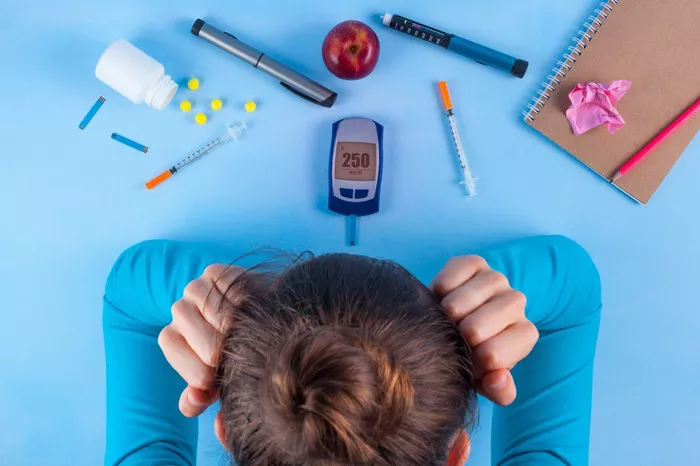Introduction: Hyperglycemia, defined as elevated blood glucose levels, is a common concern in individuals with diabetes mellitus. It requires careful management to prevent complications and maintain optimal health. Insulin therapy plays a central role in controlling hyperglycemia, but determining the appropriate dosage can be complex and multifaceted. In this article, we will explore the principles of insulin dosage for managing hyperglycemia in various clinical scenarios.
Understanding Hyperglycemia: Hyperglycemia occurs when the body either does not produce enough insulin or is unable to effectively use the insulin it produces. In individuals with type 1 diabetes, the pancreas fails to produce insulin, necessitating exogenous insulin replacement therapy. In type 2 diabetes, insulin resistance and impaired insulin secretion contribute to hyperglycemia, often requiring insulin therapy as the disease progresses.
The goals of insulin therapy in hyperglycemia management include:
- Lowering blood glucose levels to within target range.
- Minimizing the risk of acute complications such as diabetic ketoacidosis (DKA) and hyperosmolar hyperglycemic state (HHS).
- Preventing long-term complications associated with chronic hyperglycemia, such as cardiovascular disease, neuropathy, and nephropathy.
Types of Insulin: Several types of insulin are available for managing hyperglycemia, each with unique pharmacokinetic profiles that influence dosing strategies. These include:
- Rapid-acting insulin: e.g., insulin lispro, insulin aspart, insulin glulisine. Onset of action is typically within 15 minutes, with peak effects occurring 1-2 hours after administration.
- Short-acting insulin: e.g., regular insulin. Onset of action is around 30 minutes, with peak effects occurring 2-3 hours after administration.
- Intermediate-acting insulin: e.g., NPH (Neutral Protamine Hagedorn) insulin. Onset of action is 1-2 hours, with peak effects occurring 4-12 hours after administration.
- Long-acting insulin: e.g., insulin glargine, insulin detemir, insulin degludec. These insulins provide basal insulin coverage with relatively constant effects over an extended duration, typically lasting 18-24 hours.
Insulin Dosage Principles: The dosage of insulin required to manage hyperglycemia varies depending on several factors, including:
- Individual insulin sensitivity and resistance.
- Current blood glucose levels.
- Nutritional intake and carbohydrate content of meals.
- Physical activity level.
- Concurrent illness or stress.
A systematic approach to insulin dosage adjustment involves titration based on these factors while aiming for target blood glucose levels. The following are general principles for insulin dosage adjustment:
- Basal Insulin Dosing: Basal insulin provides a background level of insulin throughout the day, mimicking the body’s natural basal insulin secretion. The dosage of basal insulin is typically adjusted to achieve fasting blood glucose targets, aiming for levels between 80-130 mg/dL (4.4-7.2 mmol/L) for most adults.
Dosage adjustments may be made based on:
- Fasting blood glucose levels measured before meals or overnight.
- Patterns of nocturnal hypoglycemia or hyperglycemia.
- Changes in physical activity or meal timing.
- Bolus Insulin Dosing: Bolus insulin is administered to cover the carbohydrate content of meals and to correct elevated blood glucose levels. The dosage of bolus insulin is calculated based on factors such as the patient’s insulin-to-carbohydrate ratio (ICR) and correction factor (CF).
ICR represents the amount of rapid-acting insulin required to cover a certain amount of carbohydrate intake. It is determined through individualized assessment and may vary depending on factors such as insulin sensitivity and meal composition. A typical starting ICR might be 1 unit of insulin per 10-15 grams of carbohydrate.
CF represents the decrease in blood glucose expected per unit of insulin administered. It is used to correct high blood glucose levels outside of mealtime. A typical CF might be 1 unit of insulin per 50 mg/dL (2.8 mmol/L) above target blood glucose.
Dosage adjustments for bolus insulin are made based on:
- Carbohydrate intake at meals.
- Pre-meal blood glucose levels.
- Postprandial blood glucose levels measured 1-2 hours after meals.
- Correction doses for elevated blood glucose levels.
- Correction Insulin Dosing: Correction insulin doses are used to lower elevated blood glucose levels outside of mealtime. These doses are calculated based on the CF and the degree of hyperglycemia above the target range.
The formula for calculating correction doses is: Correction dose (units) = (Current blood glucose – Target blood glucose) / CF
For example, if the target blood glucose is 100 mg/dL (5.6 mmol/L) and the current blood glucose is 150 mg/dL (8.3 mmol/L), and the CF is 50, the correction dose would be: (150 – 100) / 50 = 1 unit
Dosage adjustments for correction insulin are made based on:
- Degree of hyperglycemia above target.
- Individual insulin sensitivity.
- Response to previous correction doses.
Clinical Considerations:
When prescribing insulin therapy for hyperglycemia management, several clinical considerations should be taken into account:
- Hypoglycemia Risk: Intensive insulin therapy carries a risk of hypoglycemia, which can have serious consequences, including seizures, unconsciousness, and even death. Therefore, insulin dosages should be carefully titrated to minimize the risk of hypoglycemia while achieving glycemic targets.
- Individualized Therapy: Insulin dosing should be individualized based on factors such as age, weight, renal function, comorbidities, and lifestyle factors. Close monitoring and regular follow-up are essential to assess response to therapy and make necessary adjustments.
- Patient Education: Patients receiving insulin therapy should receive comprehensive education on self-management, including insulin administration, glucose monitoring, carbohydrate counting, and recognition and treatment of hypo- and hyperglycemia. Empowering patients to actively participate in their care improves adherence and outcomes.
Conclusion
Insulin therapy is a cornerstone in the management of hyperglycemia in individuals with diabetes mellitus. Determining the appropriate dosage requires careful consideration of individual factors and glycemic targets. By following a systematic approach to insulin dosing and considering clinical factors, healthcare providers can optimize glycemic control while minimizing the risk of hypoglycemia and other complications. Regular monitoring and ongoing education are essential components of successful insulin therapy.
Related topics:
Blood Glucose vs Blood Sugar: What is the Difference?


























